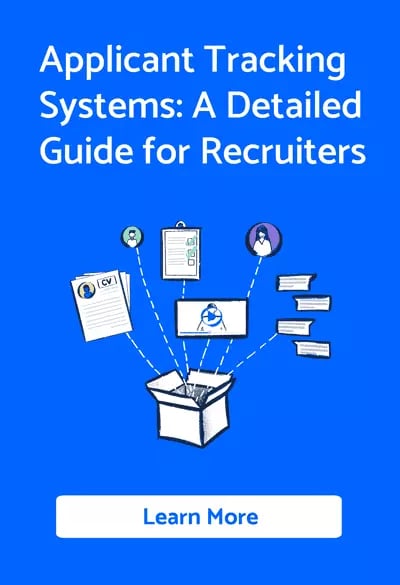In today’s hyperconnected world, an inclusive employer brand is not just a matter of corporate social responsibility, but a business imperative.
A McKinsey report revealed that companies in the top quartile for racial and ethnic diversity are 35% more likely to have above-average financial returns.
Therefore, the business case for an inclusive employer brand is clear: diversity drives profitability.
An inclusive employer branding not only helps attract a wider talent pool but also fosters a work culture that values diversity and inclusion.
This, in turn, enhances employee engagement, productivity, and loyalty. In the next sections, we’ll delve into a comprehensive 21-point checklist to create an inclusive employer brand, enriched with relevant data and metrics.
1. Define Your Brand Values
Every successful employer brand starts with defining core values. These values serve as a compass guiding your organisation’s actions and decisions.
They should unequivocally reflect a commitment to diversity and inclusion.
But remember, these values should be more than words on your website. They must be embedded in your day-to-day operations and form an integral part of your company culture.
2. Conduct a Diversity Audit
A diversity audit can help you assess the current state of diversity within your organisation. This involves looking at diversity data across all departments and levels within your organisation.
A Boston Consulting Group study found that companies with diverse management teams report 19% higher revenues due to innovation. This finding underscores the importance of diversity in leadership and throughout your organisation.
3. Set Clear Diversity and Inclusion Goals
Once you have a clear understanding of your current diversity landscape, the next step is to establish specific, measurable, achievable, relevant, and time-bound (SMART) diversity and inclusion goals. These goals will provide a roadmap for your diversity and inclusion initiatives, ensuring that you have a clear direction and can measure progress along the way.
4. Communicate Your Commitment to Diversity and Inclusion
Communication is key in conveying your commitment to diversity and inclusion. This commitment should be communicated consistently across all channels - from your website and job postings to your social media platforms and internal communications. Consistent and authentic communication can help build trust and attract diverse talent.
5. Highlight Diverse Employee Stories
People relate to stories more than they do to facts and figures. Sharing stories of your diverse employees can help prospective employees see themselves within your organisation. This not only helps attract diverse talent but also fosters a sense of belonging among your existing employees.
6. Foster an Inclusive Company Culture
An inclusive company culture is one where everyone feels valued, heard, and respected. This goes beyond offering perks and benefits. It’s about creating a work environment where employees feel comfortable expressing their views and can bring their whole selves to work. A study by Deloitte found that an inclusive culture leads to a 6-fold increase in innovation and a 2-fold increase in meeting or exceeding financial targets.
7. Provide Diversity and Inclusion Training
Diversity and inclusion training can help employees understand unconscious biases and foster a more inclusive mindset. A Harvard Business Review study found that diversity training can have positive effects, especially when it’s voluntary and underscores the social justice implications of diversity.
8. Ensure Fair Hiring Practices
Fair hiring practices are crucial in attracting and selecting a diverse workforce. This includes everything from the language used in job descriptions to ensuring a diverse interview panel. Research by the Harvard Business School shows that using gender-neutral language in job descriptions leads to a 42% increase in responses from women.
9. Leverage Diverse Job Boards and Recruitment Channels
To attract diverse talent, you need to reach them where they are. This involves leveraging diverse job boards and recruitment channels. Specialised job boards cater to specific demographics such as women, people of colour, LGBTQ+ individuals, and people with disabilities. By posting your job vacancies on these platforms, you can broaden your reach and tap into diverse talent pools.
Further, engagement with professional networks and communities that cater to diverse groups can also significantly enhance your employer brand’s visibility among these demographics. For instance, attending career fairs at historically Black colleges and universities (HBCUs) in the United States can effectively connect with talented Black students and graduates.
Data from the U.S. Equal Employment Opportunity Commission shows that companies using diverse job boards and recruitment channels have a 30% higher proportion of minority employees compared to those who don’t. This makes it clear that these platforms can help you build a more diverse and inclusive workforce.
10. Offer Flexible Working Options
Flexible working options have become an essential aspect of modern work arrangements.
These options can significantly increase your appeal to a diverse range of candidates, including working parents, people with disabilities, and those with other significant responsibilities outside work.
According to a study by IWG, 80% of workers in the U.S. would choose a job with a flexible working option over one without. Offering such flexibility can thus be a key differentiator in your employer branding.
11. Review and Update Your Policies
Your company policies should mirror your commitment to diversity and inclusion. This includes policies regarding harassment, discrimination, family leave, and others. Regularly reviewing and updating these policies is crucial to ensure they remain relevant and effective. A study by McKinsey shows that companies with gender-diversity policies have 15% higher employee satisfaction rates.
12. Implement a Zero-Tolerance Policy for Discrimination
It’s important to communicate and enforce a zero-tolerance policy towards any form of discrimination. This policy sends a strong message about your company’s stance and helps create a safe and inclusive work environment.
A study by the Society for Human Resource Management (SHRM) found that 57% of employees consider zero-tolerance policies towards discrimination a key factor in their job satisfaction.
13. Recognise and Celebrate Diverse Holidays and Events
Recognising and celebrating diverse holidays and cultural events can demonstrate respect for different cultures and foster a sense of inclusion. This could involve celebrating holidays such as Lunar New Year or Diwali, or marking events such as Pride Month or Black History Month. A study by Glassdoor found that 67% of job seekers consider diversity an important factor when evaluating companies and job offers.
14. Provide Equal Opportunities for Growth and Development
Equal opportunity is a fundamental aspect of an inclusive employer brand. This means providing all employees with equal access to opportunities for growth and development, regardless of their gender, race, age, or any other characteristic.
A study by the Peterson Institute for International Economics found that companies with 30% female leaders could add up to 6 percentage points to their net margin.
15. Implement Diverse Succession Planning
Succession planning is a crucial aspect of corporate governance. A diverse succession plan can ensure that your leadership pipeline is rich with diverse talent, reflecting your commitment to diversity and inclusion at all levels of the organisation. According to PwC, companies with diverse executive boards outperform peers by 36%.
16. Incorporate Diversity and Inclusion in Performance Metrics
Incorporating diversity and inclusion in performance metrics can help hold managers accountable and drive real progress. It sends a strong message that diversity and inclusion are not just nice-to-haves but essential components of business success.
17. Encourage Employee Resource Groups (ERGs)
ERGs are employees who come together based on shared characteristics or experiences, such as gender, race, or sexual orientation. ERGs can provide valuable insights into improving the workplace for different groups, contributing to personal and professional development, and enhancing overall employee engagement.
18. Foster Open Communication
Open communication fosters an environment where employees feel comfortable expressing their opinions and ideas. This can lead to better problem-solving, innovation, and a more inclusive workplace.
19. Advocate for Diversity and Inclusion in Your Industry
Your commitment to diversity and inclusion should extend beyond your organisation. Advocate for these principles in your industry through thought leadership, partnerships, and public commitments.
20. Measure Your Progress
Regularly measuring your progress against your diversity and inclusion goals is crucial to ensure you’re on track. This can involve tracking diversity metrics, employee engagement scores, and other relevant data.
21. Continuously Improve
Creating an inclusive employer brand is not a one-off effort but a continuous journey. It requires ongoing reflection, learning, and improvement.
As you make progress towards your diversity and inclusion goals, continue to identify areas for improvement and take action to address them. Regular employee feedback surveys can provide valuable insights into this process.
According to a study by Qualtrics, organisations that excel at employee experience have 4 times more productive employees.
In conclusion, creating an inclusive employer brand is a multifaceted and ongoing process. It requires clear values, fair practices, effective communication, and continuous improvement.
The benefits, however, are profound. From driving innovation and profitability to attracting top talent and boosting employee engagement, the power of an inclusive employer brand is undeniable.
Armed with this 21-point checklist, you can create an inclusive employer brand that benefits your employees, your business, and society.




